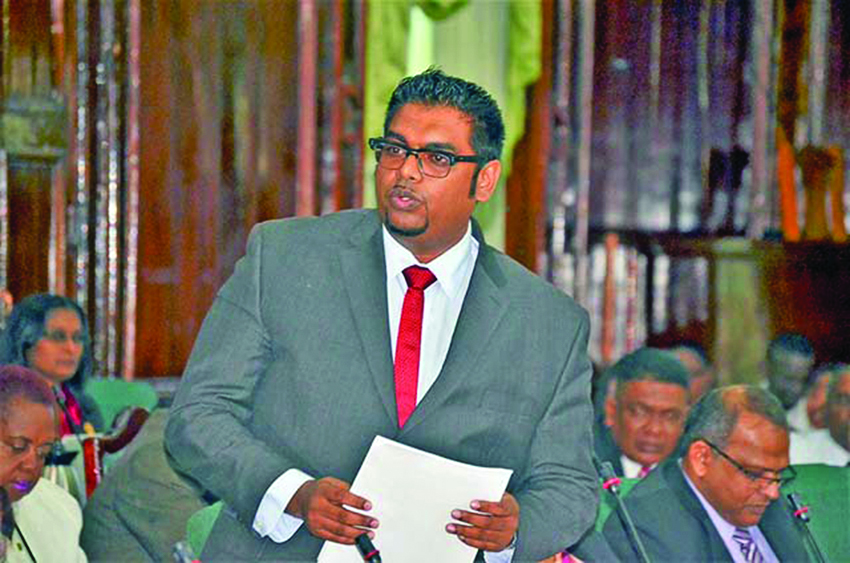Home News GDP growth not reflective of economic development – Ali
Economist Irfaan Ali has assessed that economic development is stagnant regardless of the recorded growth in the Gross Domestic Product (GDP) in 2016.
Ali on Saturday said as most contemporary macroeconomists would concur, a growth in GDP merely reflects economic growth but not economic development. The latter, he pointed out, “is the ultimate achievement and would determine if we would benefit from improved access to health care, education, housing etc.” 
Given what he described as the “starry-eyed” feature of the current Administration, Ali noted that economic development will be more of a longing desire than an imminent achievement.
He pointed too that the 3.6 per cent growth last year was mainly attributed to the windfall gain in gold through higher prices, as all other productive sectors were failing.
“Tepid is what characterised our key traditional sectors, with the exception of gold. As anticipated, the agriculture, fishing and forestry sector contracted by 10.5 per cent, with sugar, rice and forestry being the biggest looser with 20.5 per cent, 22.4 per cent and 27.4 per cent respectively. Had the Government not tried to reinvent the wheel and proceed with policies similar to that of the [People’s Progressive Party] PPP for the sugar, rice and forestry sector, overall GDP would have increase by 5.7 per cent instead of a meager 3.6 per cent at the end of 2016,” the parliamentarian expressed.
The former Housing Minister argued that the counterintuitive policies have cost the nation approximately US$40.4 million, revenues that would have expanded the foreign exchange reserve by approximately 6.7 per cent and help stabilise the exchange rate.
He further posited that the aftermath of the failed amorphous policies is visible and ubiquitous through the nation. Ali referred to the production of logs and sawn lumber in cubic meters at the end of 2016 which dropped by 19.7 per cent and 40.8 per cent respectively in comparison to 2015.
“This underperformance would spell disaster for our loggers, truck drivers, lumber dealers, and most importantly to our Amerindian brothers and sisters who rely heavily on the timber industry as a means of income to sustain their livelihood. Hence, this dreary performance will inevitable spell disaster and increase hardship. Endogenous shocks of higher commodity prices will curtail demand and cripple private investment,” he stated.
The politician noted that these economic consequences will touch every Guyanese, concatenated through depreciation in purchasing power, reduced disposable income and increased hardship.
“Not only will savings be wiped out through depreciation in exchange rates, but compounding this phenomenon will be a surge in inflation, an inevitable outcome of the additional tax measures introduced this year,” Ali stated.
Furthermore, he said the sloth implementation of the Public Sector Investment Programme (PSIP) is another calamity that is directly linked to the lack of enthusiasm of the public servants.
“The quixotic approach towards work is attributed to low wages and growing economic burden. The [A Partnership for National Unity/Alliance For Change] APNU/AFC Government, upon occupying office, slaked their desire for immediate wealth with a humungous 50 per cent increase in salary while public servant received a smidgeon five per cent.
Moreover, interminable selection by intrinsic motivation will continue to hamper the implementation of the PSIP,” he stated.
